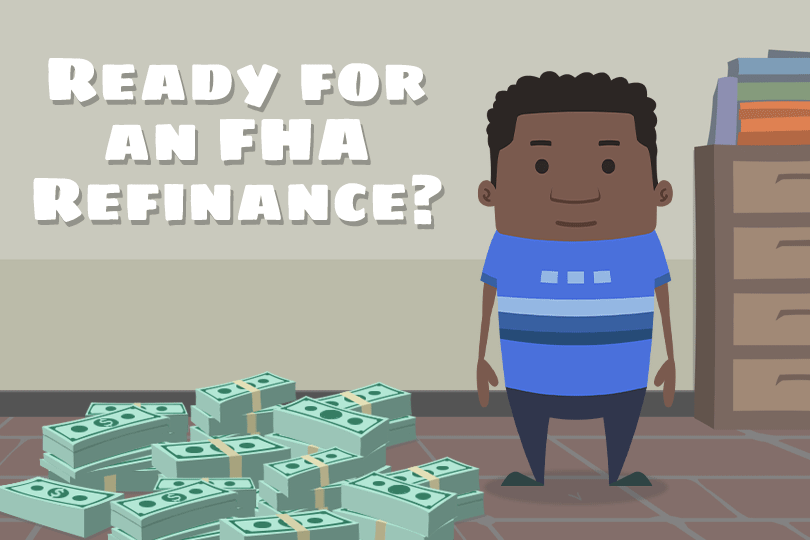When not to Consider Refinancing a Home
March 13, 2024
But there are other smart reasons not to refinance a home or to delay the decision until later. We examine some of the major ones below.
FHA Refinance Loans for Long-Term Homeowners
If you plan to refinance your home loan, you’ll need to save for the closing costs, origination fee, etc. One lender estimates the price of a refinance loan to be between 3% and 6% of the loan amount.
But does paying that fee make sense if you don’t plan to stay in the home for a long time? If you’re considering selling the property in the short term or even a bit longer down the road, you may do well to save the expense of a refinance loan in anticipation of not owning the home any longer.
If you plan to keep the house long-term, the math is different. How much do you save on a monthly mortgage payment by refinancing? Refinancing may make more sense if you aim to lower your monthly bills.
However, refinancing to save money throughout the loan in interest doesn’t work if you don’t stay in the house long term.
Refinance to Renovate?
If you need cash to improve a property, there are multiple FHA options to refinance. The numbers drive a decision to go with an FHA cash-out refinance or an FHA 203(k) rehab loan.
If you want to make standard improvements that don’t require work on load-bearing walls, you can use a smaller 203(k) rehab loan rather than fully refinancing your home with a cash-out loan to do so.
If you need to do extensive work covered under the 203(k) program, applying for a standard 203(k) refinance loan may be wise.
Why? Because an FHA cash-out refinance is limited to 80% of the home's value. A 203(k) rehab refinance loan offers an LTV of “110 percent of the After Improved Value (100 percent for condominiums)” or the appropriate area loan limit according to HUD 4000.1, the FHA Single-Family Lender’s Handbook.
Don’t Refinance to Cover Credit Card Debt
Why give this advice specifically to those who want to apply for an FHA cash-out refinance loan to pay off credit card bills? Because using credit to pay off revolving credit can lead to the borrower running up the same accounts again later, canceling out the first credit card payoff.
It’s better to pay off debt that won’t recur if you do so with an FHA cash-out refi.
------------------------------
RELATED VIDEOS:
Don't Skip the Home Inspection
Bigger is Better With a Jumbo Loan
Insuring Mortgages With the FHA Funding Fee

FHA Loan Articles
February 17, 2025The federal government backs FHA home loans, which allows participating FHA lenders to offer lower down payment options and more lenient credit requirements. How much do you really know about your FHA home loan options and how they compare to other mortgage choices?
February 13, 2025For many college graduates, student loan debt is a concern. A common question is how this debt impacts the ability to buy a home. This Q&A explores the relationship between student loans and FHA loan approvals. How much do you know about how your student loan debt affects your ability to be approved for a mortgage?
February 12, 2025Choosing between FHA and conventional home loans can be daunting for some first-time home buyers. What are the concerns between these two programs, and what does each one offer the borrower? We examine some of the key issues in our question-and-answer session about FHA mortgages versus conventional loans.
February 11, 2025Established in 1934 as part of the National Housing Act, the FHA's primary mission is to stimulate the housing market by providing mortgage insurance to lenders. This insurance reduces the risk associated with lending to borrowers who may otherwise be considered higher risk, encouraging lenders to offer more favorable terms, such as lower down payments and more flexible credit requirements. A key element of the FHA program is its commitment to fair housing, which is deeply rooted in the Fair Housing Act.
February 10, 2025How much do you really know about the home buying process? One major factor in protecting your new investment is knowing how the title search process works and why you need to have one done. This quiz will assess your comprehension of what a title search entails, why it's so important when using an FHA loan, and how it protects you as a buyer. From identifying potential liens to guaranteeing clear ownership, a title search plays a critical role.







